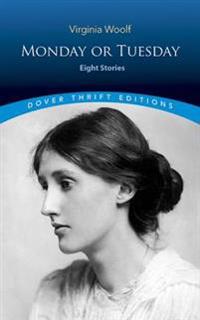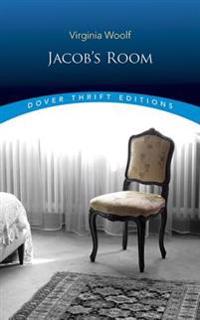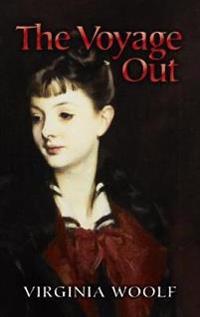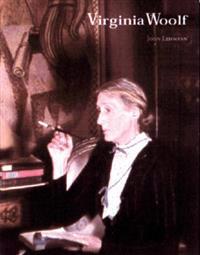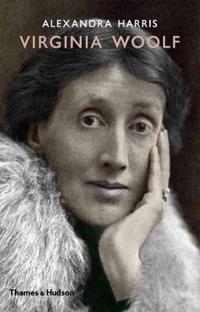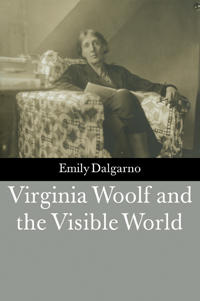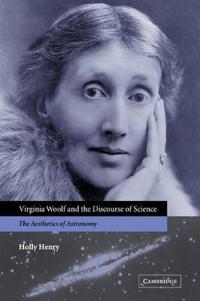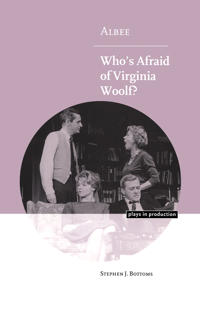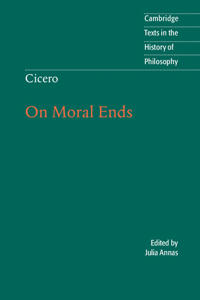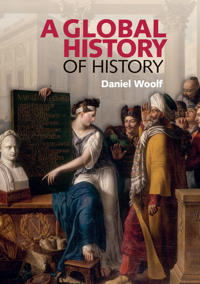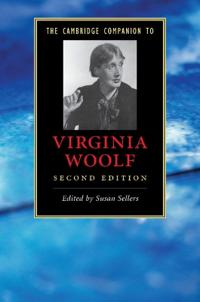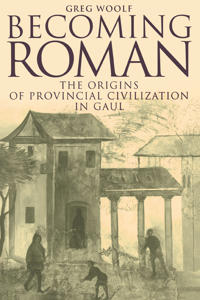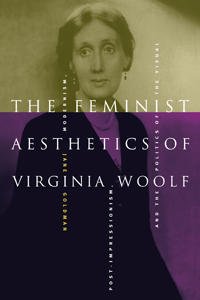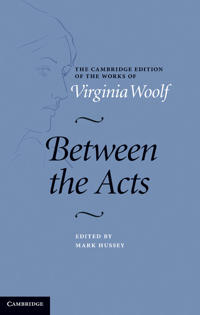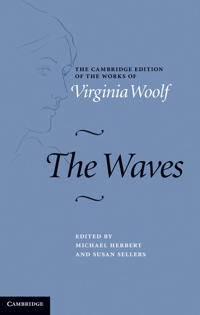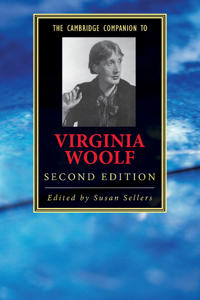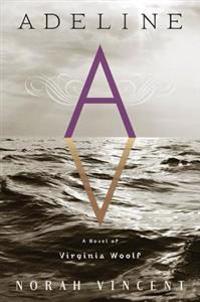Mom-in-Chief: How Wisdom from the Workplace Can Save Your Family from Chaos (Inbunden)
avJamie Woolf
ISBN: 9780470381311 - UTGIVEN: 2009-02-28Avoiding Audit Pitfalls: A Forensic Accountant's Casebook (Inbunden)
avEmile Woolf
ISBN: 9780470686676 - UTGIVEN: 2010-10-31Monday or Tuesday (Pocket)
avVirginia Woolf
ISBN: 9780486294537 - UTGIVEN: 199704"A Haunted House," "A Society," "An Unwritten Novel," "The String Quartet," "Blue & Green," "Kew Gardens," two more. An excellent entree into the larger body of Woolf''s work.
[...]Jacob's Room (Häftad)
avVirginia Woolf
ISBN: 9780486401096 - UTGIVEN: 200901With its publication in 1922, Virginia Woolf revolutionized the modern novel with Jacob's Room. Based on the life of her own brother, this unforgettable book chronicles the life and times of Jacob Flanders, from childhood to his death in World War I. An untraditional tale focusing on a flow of rando[...]
Virginia Woolf (Häftad)
avJohn Lehmann
ISBN: 9780500260265 - UTGIVEN: 198704Since her death in 1941, Virginia Woolf has come to be recognized as one of the supreme prose writers of the twentieth century.In the thirty years between her marriage to Leonard Woolf in 1912 and her death, she wrote fifteen books, including the epochmaking novels To the Lighthouse and The Waves, a[...]
Virginia Woolf (Pocket)
avAlexandra Harris
ISBN: 9780500290866 - UTGIVEN: 2013-02-18Weaving together the life and work of Virginia Woolf, this book serves as an introduction to both. Following the chronology of Woolfs life, it gives due prominence to her dazzlingly inventive essays, traces the contentious course of her afterlife and shows why, seventy years after her death.[...]
Virginia Woolf (Inbunden)
avAlexandra Harris
ISBN: 9780500515921 - UTGIVEN: 201109Alexandra Harris' hugely acclaimed book "Romantic Moderns" (winner of the 2010 "Guardian" First Book Award) overturned our picture of modernist culture during the interwar years. In this, her second book, she brings her attention to one of the towering figures of literary modernism. It is an intense[...]
Virginia Woolf and the Real World (Övrig)
avAlex Zwerdling
ISBN: 9780520061842 - UTGIVEN: 1987-10-14Flight of the Mind, The: Virginia Woolf's Art and Manic-Depressive Illness (Övrig)
avThomas C. Caramagno
ISBN: 9780520072800 - UTGIVEN: 1992-07-27In this major new book on Virginia Woolf, Caramagno contends psychobiography has much to gain from a closer engagement with science. Literary studies of Woolf's life have been written almost exclusively from a psychoanalytic perspective. They portray Woolf as a victim of the Freudian 'family romance[...]
Flight of the Mind, The: Virginia Woolf's Art and Manic-Depressive Illness (Övrig)
avThomas C. Caramagno
ISBN: 9780520205048 - UTGIVEN: 1996-02-29In this major new book on Virginia Woolf, Caramagno contends psychobiography has much to gain from a closer engagement with science. Literary studies of Woolf's life have been written almost exclusively from a psychoanalytic perspective. They portray Woolf as a victim of the Freudian 'family romance[...]
Virginia Woolf and the Visible World
ISBN: 9780521033602 - UTGIVEN: 2007-02In Virginia Woolf and the Visible World, Emily Dalgarno examines Woolf's engagement with notions of the subject and codes of the visible. Dalgarno examines how Woolf's writing engages with visible and non-visible realms of experience, and draws on ideas from the diverse fields of psychoanalytic theo[...]
Virginia Woolf and the Discourse of Science
ISBN: 9780521119870 - UTGIVEN: 2009-09Holly Henry investigates how advances in astronomy in the early twentieth century had a shaping effect on Woolf's literature and aesthetics as well as on the work of modernist British writers including Vita Sackville-West, H. G. Wells, Olaf Stapledon, Bertrand Russell, and T. S. Eliot. The 1920s and[...]
Albee: Who's Afraid of Virginia Woolf? (Häftad)
avStephen J. Bottoms
ISBN: 9780521635608 - UTGIVEN: 200009This is the first detailed study of one of the most important plays in contemporary theatre, Whoâs Afraid of Virginia Woolf?, by Edward Albee. In this fascinating look at the modern stage, Stephen Bottoms draws on original archival material and sources including an exclusive interview with Edwa[...]
On Moral Ends (Pocket)
avMarcus Tullius Cicero, Julia (EDT) Annas, Raphael (TRN) Woolf
ISBN: 9780521669016 - UTGIVEN: 2001-08This 2001 translation makes one of the most important texts in ancient philosophy available to modern readers. Cicero is increasingly being appreciated as an intelligent and well-educated amateur philosopher, and in this work he presents the major ethical theories of his time in a way designed to ge[...]
A Global History of History (Pocket)
avDaniel Woolf
ISBN: 9780521699082 - UTGIVEN: 201103A global history of historical writing, thought and the development of the historical discipline from the ancient world to the present. This is a definitive guide to human efforts to recover, understand and represent the past, bringing together different historical traditions and their social, econo[...]
The Cambridge Companion to Virginia Woolf (Pocket)
avSusan Sellers
ISBN: 9780521721677 - UTGIVEN: 201003Virginia Woolf's writing has generated passion and controversy for the best part of a century. Her novels - challenging, moving, and always deeply intelligent - remain as popular with readers as they are with students and academics. The highly successful 2010 Cambridge Companion has been fully revis[...]
Becoming Roman (Häftad)
avGreg Woolf
ISBN: 9780521789820 - UTGIVEN: 200007This book is a study of the process conventionally termed âRomanizationâ through an investigation of the experience of Romeâs Gallic provinces in the late Republic and early empire. Beginning with a rejection of the concept of âRomanizationâ it describes the nature of Roman [...]
The Feminist Aesthetics of Virginia Woolf (Pocket)
avJane Goldman
ISBN: 9780521794589 - UTGIVEN: 2001-01Jane Goldman offers a revisionary, feminist reading of Woolf?s work. Focusing on Woolf?s engagement with the artistic theories of her time, Goldman traces the feminist implication of her aesthetics by reclaiming for the everyday world of history and politics what seem to be private mystical moments.[...]
The Years (Inbunden)
avVirginia Woolf
ISBN: 9780521845977 - UTGIVEN: 2013-01-07The first fully annotated and collated scholarly edition of Woolf's most political novel.
Between the Acts (Inbunden)
avVirginia Woolf
ISBN: 9780521847179 - UTGIVEN: 2011-02Virginia Woolf's extraordinary last novel, Between the Acts, was published in July 1941. In the weeks before she died in March that year, Woolf wrote that she planned to continue revising the book and that it was not ready for publication. Her husband prepared the work for publication after her deat[...]
The Waves (Inbunden)
avVirginia Woolf, Michael Herbert, Susan Sellers
ISBN: 9780521852517 - UTGIVEN: 201103The Waves is one of the greatest achievements in modern literature. Commonly considered the most important, challenging and ravishingly poetic of Virginia Woolf's novels, it was in her own estimation 'the most complex and difficult of all my books'. This edition will be the most authoritative, most [...]
The Cambridge Companion to Virginia Woolf
ISBN: 9780521896948 - UTGIVEN: 2010-03Virginia Woolf's writing has generated passion and controversy for the best part of a century. Her novels - challenging, moving, and always deeply intelligent - remain as popular with readers as they are with students and academics. The highly successful Cambridge Companion has been fully revised to[...]
Adeline: A Novel of Virginia Woolf
ISBN: 9780544470200 - UTGIVEN: 2015-04From a" New York Times" best-selling author, a boldly imagined portrait of Virginia Woolf that sheds new light on the events that preceded her fatal immersion in the River Ouse in 1941
On April 18, 1941, twenty-two days after Virginia Woolf went for a walk near her weekend house in Sussex and n[...]Adeline: A Novel of Virginia Woolf (häftad)
ISBN: 9780544704855 - UTGIVEN: 2016-04Daring . . . Vincent s psychological approach is intriguing. "USA Today" Vincent is a sensitive recorder of a mind s movements as it shifts in and out of inspiration, and as it fights before submitting to despair. "New York Times Book Review" With poetic precision and psychological acuity, Norah Vin[...]



